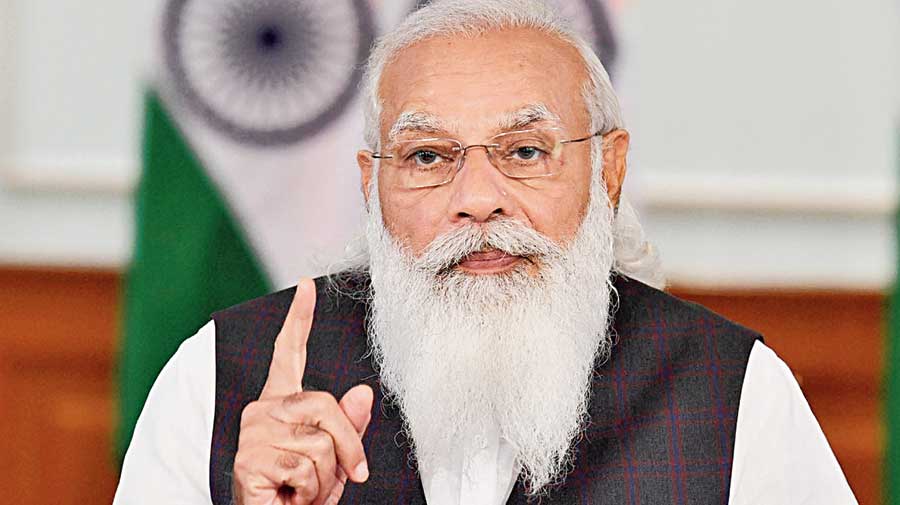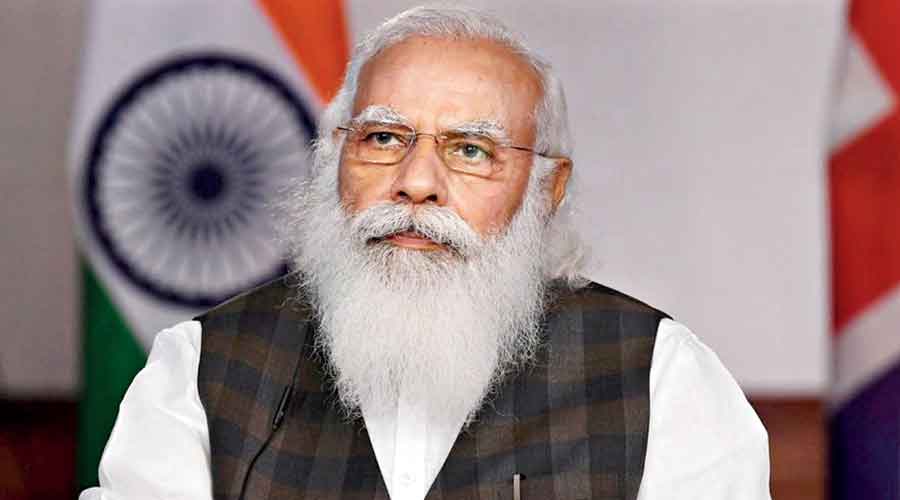The Narendra Modi government on Sunday said India’s participation at the G7 sessions reflected an understanding within the bloc that a resolution to “the biggest global crises of our time” was not possible without the country’s “involvement, engagement and support”.
P. Harish, additional secretary (economic relations) in the external affairs ministry, made the assertion while briefing reporters on Prime Minister Narendra Modi’s virtual address to the G7 summit in the UK.
What the government said about India’s indispensability in addressing “the biggest crises”, if they include Covid-19 and the threat to democratic rights, cannot be disputed.
Consider the facts: India’s Covid-19 epidemic is the second largest in the world with over 29 million cases after America’s count of over 34 million cases. India’s Covid-19 death count so far is 370,411, the third largest after the 610,000 deaths in the US and 480,000 in Brazil.
The Modi government’s vaccination policy and its multiple metamorphoses have earned their right to demand a separate global study to ensure that no one would repeat it.
India has administered over 250 million doses of Covid-19 vaccines, the US 308 million doses and the UK over 70 million doses. The proportions of fully vaccinated (two doses) among their populations are 3.5 per cent in India, 43 per cent in the US and 44 per cent in the UK.
The external affairs ministry said that in his virtual address to a session on “open societies and open economies” at the G7 summit, Modi had highlighted India’s civilisational commitment to democracy, freedom of thought and liberty.
Modi’s claim came against the backdrop of sedition cases, information technology intermediary guidelines that have ignited concerns over free speech and the right to privacy, and at least one cartoonist losing his contract after the government made known its discomfort with him.
“The Prime Minister’s views were appreciated by other leaders in the gathering,” Harish said.












